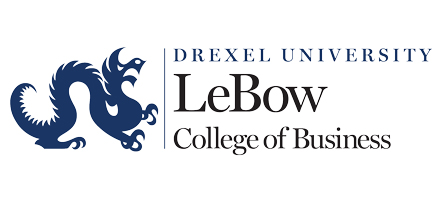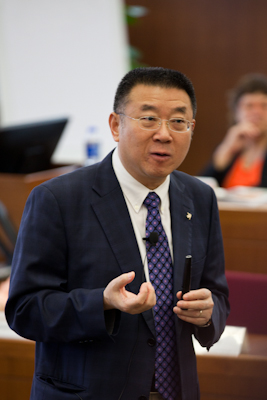To understand the problem facing Chinese business school executive MBA programs, look no further than guanxi. The word describes relationships in the political and business spheres, and if that were all it meant, it might not be an issue in the EMBA programs. But guanxi is not mere networking – it’s networking with benefits, with favors exchanged.
Unsurprisingly, then, guanxi that leads to political and business misbehavior has become a target in China’s anti-corruption crackdown, launched by President Xi Jinping, spotlighted the guanxi system, and cast suspicion on the widespread enrollment of government officials and state-owned company employees in Chinese EMBA programs, where they would mix with businesspeople.
“Authorities are trying to address public criticism of collusion and corruption between officials and businessmen,” Fudan University School of Management Dean Lu Xiongwen told the Wall Street Journal earlier this year, a few months after the Chinese government barred government officials and state-owned enterprise (SOE) employees from EMBA programs. Some 15% to 30% of EMBA students withdrew in the fall, the WSJ reported, a big hit against business schools, for which EMBA programs provide the largest revenue stream.
But as the private sector rises in China, EMBA prospects are multiplying. At China Europe International Business School before the crackdown, fewer than 10% of EMBAs had been government officials, but employees of state-owned enterprises made up 20% to 30% of the population, says CEIBS MBA program director Shimin Chen. “They stopped coming,” Chen says. “What we observe is we simply have more students from private enterprises and multinationals.” Private-sector employees who in the past might have been rejected by CEIBS EMBA program may now be admitted, Chen says. Although the shift hasn’t reduced the quality of admits – there’s a huge applicant pool and CEIBS is highly selective – the absence of executives from what remains an important sector of the economy detracts from the education, Chen says.
CRACKDOWN CUTS DIVERSITY IN THE CLASSROOM
“If you have people from different sectors, they learn from each other, they network with each other. If you exclude people from SOE or government it will affect learning, I would say, which is not healthy for the Chinese economy. SOE people and Chinese officials need training. Personally, I think it will change in a few years. I don’t think this will be a phenomenon forever.”
In addition to its massive Chinese EMBA program, which enrolls 600 to 700 students per year, CEIBS runs a much smaller Global EMBA, with about 50 to 60 students per year. Foreigners, mostly expatriates based in China, make up about a third of the student body, while the Chinese students mostly come from multinational firms.
“Within the class, we had impressive Chinese classmates from diverse companies and functions as well as fantastic expat participants from all over the globe,” McDonald’s Restaurants (Hong Kong) vice-president Susanna Li says in a student testimonial. “As a result of this diversity, the class discussion was lively, engaging and encompassed a huge range of perspectives.”
Company sponsorship of Chinese EMBA candidates has been stable, while decreasing slightly for foreign students, says Marcel Austin-Martin, admission manager for the Global EMBA. “What we’re seeing now is partial sponsorship – 30-40%,” Austin-Martin says.
TOP-PERFORMING? IT’S OFF TO CHINA WITH YOU
The program attracts high-quality foreign students – because so many talented executives end up in multinationals in China, says CEIBS assistant director of marketing Roy Chason. “China’s the most important market for virtually every sector,” Chason says. “All of the top people have been sent to Asia and especially China.”






